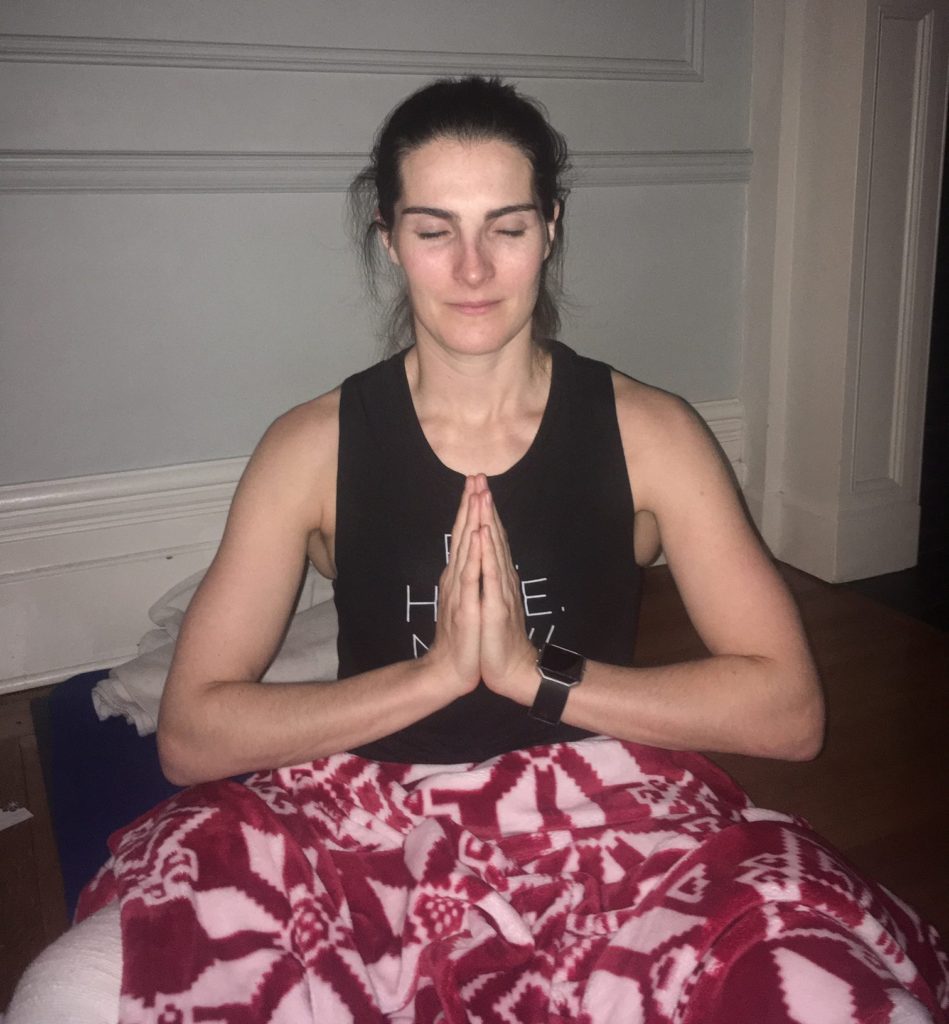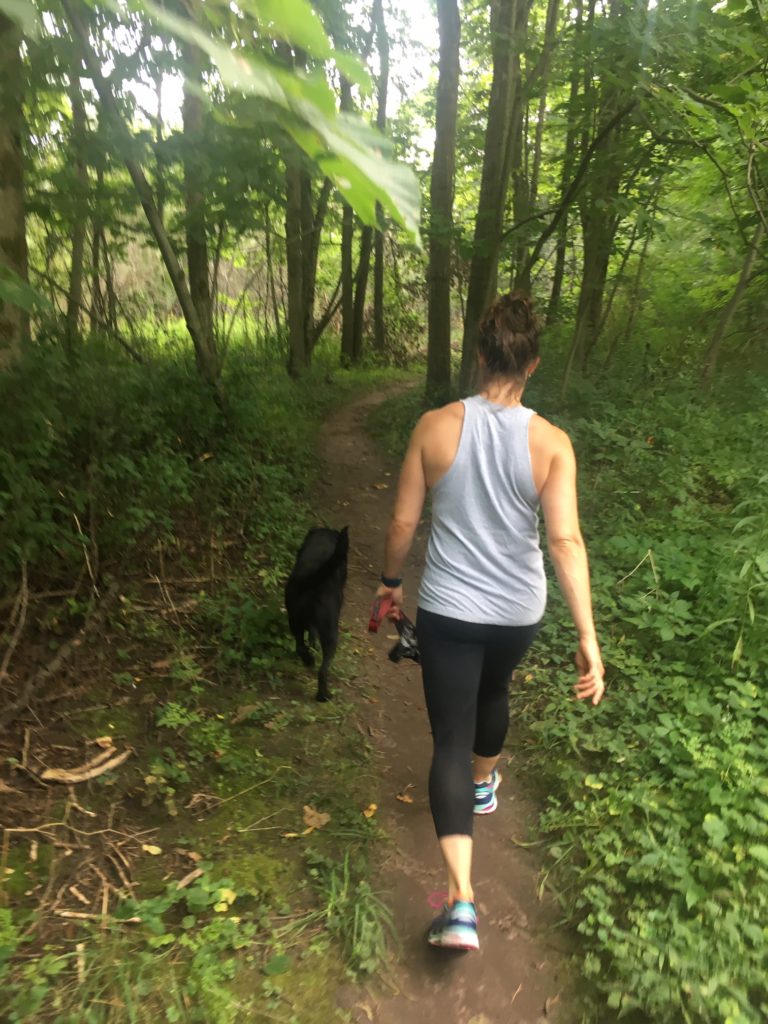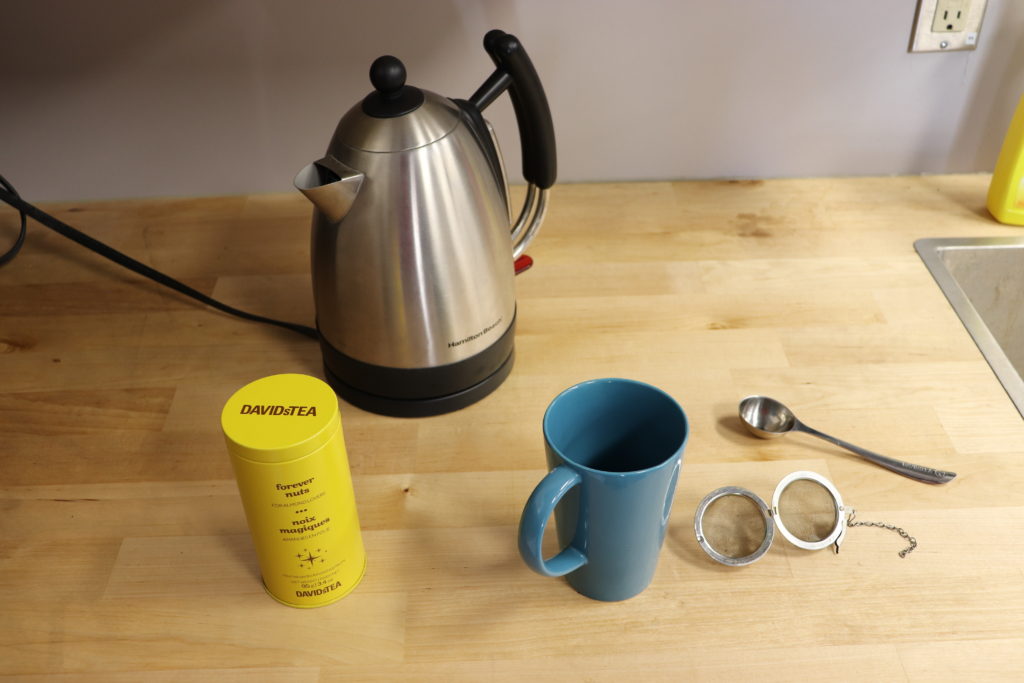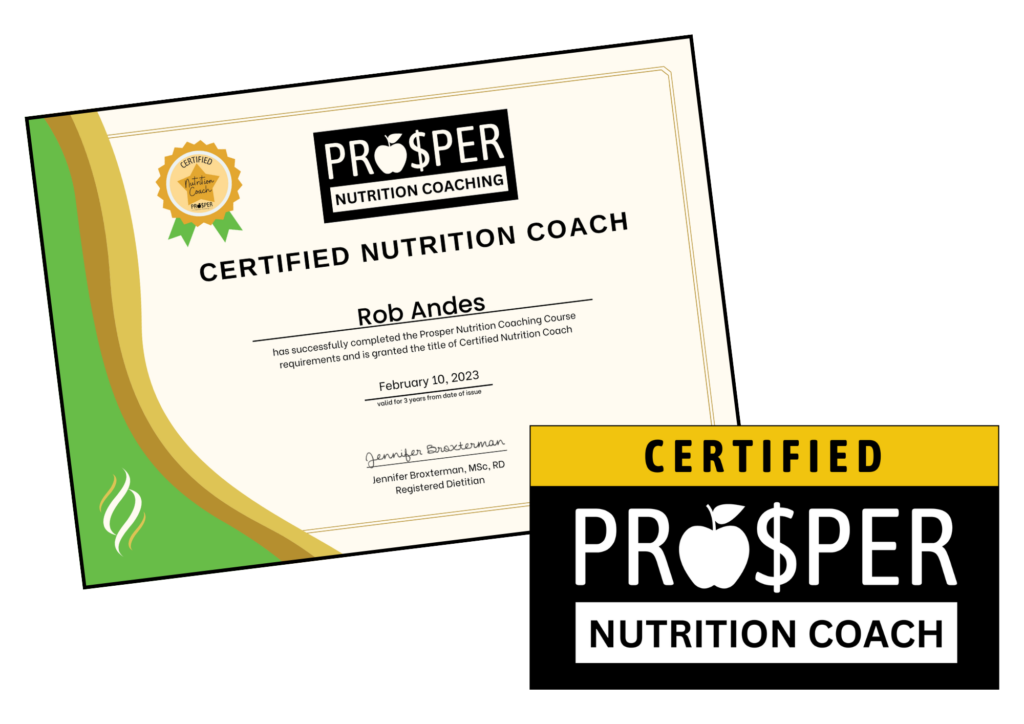

I Suck at Meditating: 3 Simple Things I Do Instead
I Suck at Meditating: 3 Simple Things I Do Instead
Written by Jennifer Broxterman, MSc, RD
Registered Dietitian, Founder of NutritionRx
The Short Version:
I’m always pushing myself to meditate more, but I suck at it. My good intentions were never quite enough to make it stick. In this article, I’m going to share 3 ways I’ve built “mini meditations” into my life, without ever sitting down on the floor, closing my eyes, and focusing on just my breath.
The Long Version:
One of my on-again off-again personal improvement goals is to meditate more. “Meditate regularly” has made my New Year’s resolution list more than once. I’ll be honest – I’ve never made it a full year, let alone a full month, until I made one important change to my mindset.
But before I reveal how I meditate today, I’ll let you in on what meditation used to mean to me.

The Meditation Fantasy
I used to have this fantasy image of being in a perfect state of Zen, sitting on a meditation cushion, eyes closed, breathing deeply – 100% in control of my “monkey brain”. I saw myself morphing into someone who was always calm and grounded in the present moment. I was cured of my anxiety, and could fall asleep each night without a worry in the world. Insomnia gone! I thought I would never have a bad mental health day ever again, thanks to the amazing powers of being a regular meditator where I simply let emotions pass through me while remaining neutral and detached.
(That’s the dream, right?)
When Knowing Doesn’t Translate to Actually Doing
I KNEW meditation was good for me. I LEARNED all about the health benefits of meditation. I even read multiple books on the subject, and totally bought into the concept. I once even signed up for a full weekend yoga and meditation retreat. Yet WHY didn’t I actually do it regularly or make it a priority when it really came down to it?
Let me back track for a second, and say that I’m not mad or disappointed in myself. I’m still not a regular meditator, even though I’ve tried many times to get into it, only to fall off yet again.
When I re-read the Meditation Fantasy above, I can clearly see that it’s fraught with faulty assumptions and unrealistic expectations. The words “always”, “cured”, and “never” are big hints that I’m being unrealistic. I’m setting myself up for disappointment and feelings of failure if I were to believe that all of that could come true, or if I put that much pressure on meditation and the benefits it would bring me.
Meditation & Healthy Eating: The Parallels
I can also see the parallels in the alternate world I spend my time in as a Registered Dietitian. I have nutrition clients who visualize themselves as these perfectly healthy eaters. They see their future selves as lean and healthy, as people who never have food cravings or bad days, and that their lives are miraculously better because they’ve lost weight. They put enormous amounts of pressure on themselves to go all in on the newest diet and exercise regime they’ve read about, only to fall off, feel discouraged, and slip even further from their goals. Textbook example of yo-yo dieting.
When I propose that they put LESS pressure on themselves, that they embrace imperfection while making these lifestyle changes, that they shrink the step to make it smaller, easier, and more attainable, and that they focus on building life-long health habits they can stick with, I’m usually met with one of two very different responses:
Person 1
- Has a growth mindset.
- They are open to coaching and reflection on past experiences that maybe their perfectionist, all-or-nothing thinking hasn’t gotten them as far as they wanted.
- They embrace building up realistic and sustainable positive habits, while acknowledging imperfection and reality at the same time.
- My three favourite coaching words, to stay “curious, kind, and honest” with themselves, resonates.
- This group trades all-or-nothing thinking for always something in their approach, and plods along consistently, although imperfectly.
Person 2
- Believes that more willpower applied to the “right plan” is the solution.
- Rigidly hang on to their sky-high standards and the ideal plan to get to their goals, and HATES the suggestion to make things easier on themselves.
- To them, easier means a slower progress. Easier means watered-down results. Easier is for wimps.
- Ain’t nobody got time for that – they want results now!
Guess who goes further in the long run?
All-or-nothing usually means more time spent “doing nothing” or *cough* “researching” the perfect plan vs. taking small, but meaningful actions towards your goals.
So, let me loop back to meditation, and why I had to start being more like person 1 if I was ever going to succeed, because trying to become a Zen master was failing in epic proportions.
The biggest mindset shift I went through was to TRY LESS HARD and make it 1000% EASIER. I also had to embrace ENJOYMENT, because sitting on the floor trying to meditate with my eyes closed made me want to fidget more than an antsy kindergartener who desperately needs to pee. Not good for anyone. And yes, I can hear you thinking, “that’s exactly why you need to master meditation Jen”, but honestly, if I can’t have fun doing something, I probably won’t stick with it no matter how much willpower I try to muster or how good it is for me.
When I reflected on my meditation failures with curiosity, kindness, and honesty, my inner dialogue changed. Here are some questions I asked myself:
- Q: How well is this working for me?
A: Not great. I can’t get into it in this format. I don’t seem to be consistent, at all.
- Q: What’s the goal here?
A: To have a quieter, more relaxed mind, that’s better able to be focused on the present moment with less worry and rumination.
- Q: Is there another way to accomplish this objective?
A: Yes, but I have to let go of the “ideal version” of meditating regularly. I need to try a new approach.
- Q: Is this fun or easy?
A: As it currently stands, no. I need to ramp up the enjoyment dial, because this sucks right now and I feel like I’m getting nowhere.
With permission to let go of what I thought meditation should look and feel like, and with the goal of making it much easier to do, I decided on three ways that I would count as “successful meditation”. Forget what the experts said, it needs to work for ME!
Meditation 1: Three Deep Breaths
One of the goals of meditation is to slow down your breathing and focus on the breath. I figured, what does the smallest positive step towards this goal look like that I could realistically do? My brain came up with 3 deep breaths. I could do that anywhere, on any day, under any circumstance.
- Some jerk just cut me off in traffic – take 3 deep breaths
- I’m transiting from working with one nutrition client to another – take 3 deep breaths
- I’m lying in bed trying to fall asleep – take 3 deep breaths
- I’m about to sit down to a meal – take 3 deep breaths
- I’m out on a hike and I’ve stopped to admire the view of a lake or river – take 3 deep breaths
- I’m feeling bored and craving an unhealthy snack – take 3 deep breaths
I instantly feel just a little bit better each time I take just 3 deep breaths, and it’s not so big of a commitment that it falls off my To Do list because I run out of time at the end of the day. I fit it in whenever and wherever I feel like it. Three Deep Breaths = meditation win #1!
Mediation 2: Walking Mediation
I don’t know about your brain, but my brain likes to look for technicalities and loop holes to argue in favour of something I like. I had read about walking meditation in one of the books I borrowed from the library and was instantly attracted to the concept. Walking without music or an audiobook, where I look around and take in my surroundings, is one way that I find reliably calms down my mind, grounds me to the present, and transforms my mood. Bonus points for when I can walk in nature, as it seems to amplify this effect. Any time I go for a walk outside = meditation win #2!

Meditation 3: Make Tea
This last one is about immersing myself into an activity where I’m 100% focused on what I’m doing. Making tea is the easiest option for my brain. It’s only a 2-4 minute time commitment, where I try to stay fully present on what I’m doing. I might smell the loose-leaf tea as I fill up my tea strainer, watch and listen to the water boil, hear the sound of hot water glug-glugging out of the tea kettle as I fill my mug, and feel the warmth seep through the ceramic cup and into my hands. All I have to ask of my brain is that I stay off my phone / social media, and not fill that time up with anything else. I simply make tea, stay present with my senses, and earn meditation win #3!

My Mindset Today
Each year, I still renew my Headspace Meditation App subscription. I still often use their sleep soundscapes as peaceful white noise to drift off to. Occasionally, I try to do a guided meditation during the day, or when I wake up.
But as you can see, I’ve totally let go of the version of meditation that was proving to be very difficult for me.
I would NEVER judge an athlete at our gym who scales the workout to make it more manageable to their fitness level, yet for the longest time, I was really resistant to scaling back my own meditation practice to better match where my mind is at. Do I still aspire to be capable of sitting down to 15-60 unbroken minutes of meditation, sure. But do I put pressure on myself anymore to do something that was uncomfortable and unenjoyable, certainly not.
If you’re looking for some of the mental and physical benefits of a calmer mind, but are struggling like I was to get there via traditional meditation, I hope the reframing and suggestions in this article can help.
Maybe for you it’s taking 3 deep breaths, or going for a short walk outside, or making a cup of tea. Or maybe it’s blowing bubbles with your kids giggling and chasing them around the room, or colouring, or taking a bath. Maybe meditation masters will say that I’m missing the point completely. Or maybe they’re nodding their heads in agreement.
For me, putting way less pressure on myself and finding ways to shrink the step to something realistic was the only way I truly started to have a consistent mental health practice. To this day, I still take 3 deep breaths, go for walks, and make tea mindfully, often hitting one, two, or all three self-care activities in the same day. And that’s the biggest win in my books!
I’ll take healthy habits and consistency, over impossible ideals, any day.
Wishing you health & happiness,
♡ Jen
Jennifer Broxterman, MSc, RD
Registered Dietitian
NutritionRx: happy, healthy living with our team of Registered Dietitians
Prosper Nutrition Coaching: a world-class nutrition coaching certification
+
+
+
Want to work with a NutritionRx Registered Dietitian?
Learn more here: Nutrition Packages & Rates
+
+
+
Want to become a Certified Nutrition Coach?
Learn more about our habits-based Prosper Nutrition Certification



